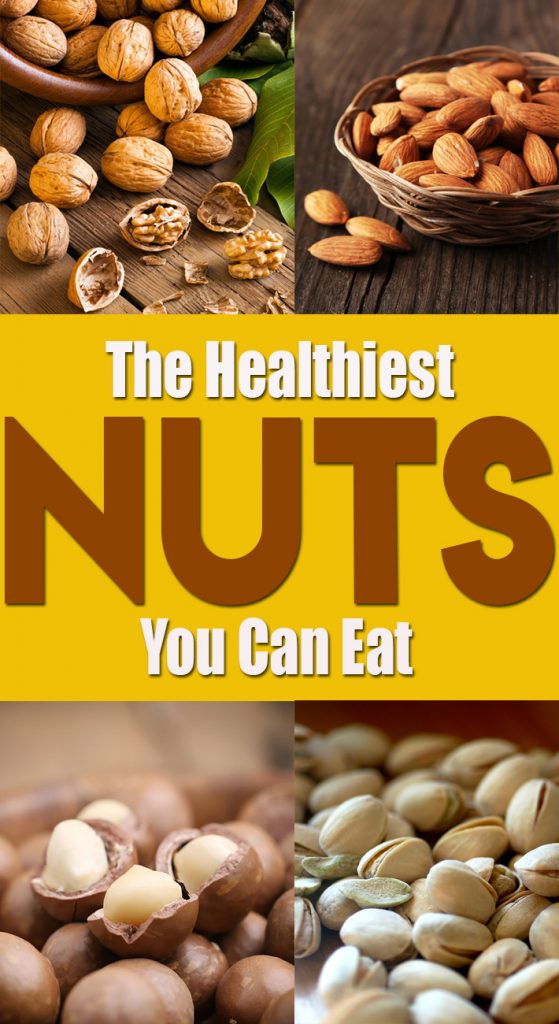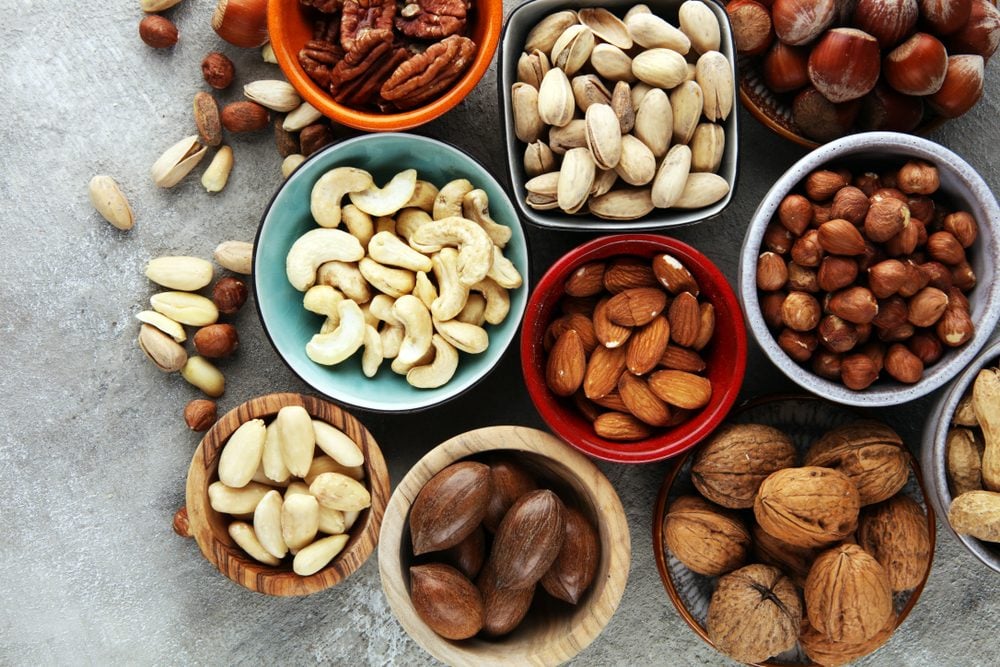What Are The Healthiest Nuts And Seeds To Eat
Healthy Nuts and Seeds to Eat
Nuts and seeds are an important part of a healthy diet. They are packed with essential nutrients and provide a great source of protein, fiber, vitamins, and minerals. Eating a variety of nuts and seeds can help you meet your daily nutritional needs and promote good health.
Benefits of Eating Nuts and Seeds
Nuts and seeds are full of essential nutrients that are important for our health. They are high in protein, fiber, vitamins, and minerals. They are also high in healthy fats, like monounsaturated and polyunsaturated fats, which are good for your heart health. Eating nuts and seeds can help reduce your risk of heart disease, diabetes, and obesity. They are also a great source of antioxidants, which can help protect your body from damage caused by free radicals.
Types of Healthy Nuts and Seeds
There are many types of nuts and seeds that are good for you. Some of the healthiest nuts and seeds include almonds, walnuts, cashews, chia seeds, flax seeds, pumpkin seeds, and sunflower seeds. Each of these nuts and seeds is packed with essential nutrients and can provide a wide range of health benefits.
Almonds
Almonds are a great source of healthy fats, protein, fiber, and vitamins. They are also high in magnesium, which is important for energy production and healthy bones. Eating almonds can help reduce your risk of heart disease, lower cholesterol, and help with weight loss.
Walnuts
Walnuts are a great source of omega-3 fatty acids, which are important for brain health. They are also high in protein, fiber, and vitamins. Eating walnuts can help reduce your risk of heart disease and improve cholesterol levels.
Chia Seeds
Chia seeds are a great source of fiber and omega-3 fatty acids. They are also high in protein, vitamins, and minerals. Eating chia seeds can help reduce your risk of heart disease, regulate blood sugar levels, and improve digestive health.
Flax Seeds
Flax seeds are a great source of fiber and omega-3 fatty acids. They are also high in antioxidants, which can help protect your body from damage caused by free radicals. Eating flax seeds can help reduce your risk of heart disease, regulate cholesterol levels, and improve digestive health.
Pumpkin Seeds
Pumpkin seeds are a great source of zinc, which is important for immune health. They are also high in protein, fiber, and vitamins. Eating pumpkin seeds can help reduce your risk of heart disease, lower cholesterol, and improve digestive health.
Sunflower Seeds
Sunflower seeds are a great source of vitamin E, which is important for skin health. They are also high in protein, fiber, and minerals. Eating sunflower seeds can help reduce your risk of heart disease, lower cholesterol, and improve digestive health.
Conclusion
Nuts and seeds are an important part of a healthy diet. They are packed with essential nutrients and provide a great source of protein, fiber, vitamins, and minerals. Eating a variety of nuts and seeds can help you meet your daily nutritional needs and promote good health.
Create a news blog article about What Are The Healthiest Nuts And Seeds To Eat, in relaxed English. The article consists of at least 6 paragraphs. Every paragraphs must have a minimum 200 words. Create in html file form without html and body tag. first title using tag. sub title using and tags. Paragraphs must use
tags. Paragraphs must use
tags.
Healthy Nuts and Seeds to Eat
Nuts and seeds are an important part of a healthy diet. They are packed with essential nutrients and provide a great source of protein, fiber, vitamins, and minerals. Eating a variety of nuts and seeds can help you meet your daily nutritional needs and promote good health. Nuts and seeds are a good source of healthy fats, like monounsaturated and polyunsaturated fats, which are beneficial for your heart health. Eating nuts and seeds can help reduce your risk of heart disease, diabetes, and obesity. Additionally, they are a good source of antioxidants, which can help protect your body from damage caused by free radicals.
Types of Healthy Nuts and Seeds
Nuts and seeds come in a variety of forms and provide a range of benefits. Almonds, walnuts, cashews, chia seeds, flax seeds, pumpkin seeds, and sunflower seeds are some of the healthiest nuts and seeds that you can eat. All of these are packed with essential vitamins and minerals, such as protein, fiber, and healthy fats. They can help reduce your risk of heart disease, lower cholesterol, and improve digestive health. Additionally, they are a good source of antioxidants, which can help protect your body from damage caused by free radicals.
Almonds
Almonds are a great source of healthy fats, protein, fiber, and vitamins. They are also high in magnesium, which is important for energy production and healthy bones. Eating almonds can help reduce your risk of heart disease, lower cholesterol, and help with weight loss. They are also a good source of antioxidants, which can help protect your body from damage caused by free radicals.
Walnuts
Walnuts are a great source of omega-3 fatty acids, which are important for brain health. They are also high in protein, fiber, and vitamins. Eating walnuts can help reduce your risk of heart disease and improve cholesterol levels. Additionally, they are a good source of antioxidants, which can help protect your body from damage caused by free radicals.
Chia Seeds
Chia seeds are a great source of fiber and omega-3 fatty acids. They are also high in protein, vitamins, and minerals. Eating chia seeds can help reduce your risk of heart disease, regulate blood sugar levels, and improve digestive health. Chia seeds are also a good source of antioxidants, which can help protect your body from damage caused by free radicals.
Flax Seeds
Flax seeds are a great source of fiber and omega-3 fatty acids. They are also high in antioxidants, which can help protect your body from damage caused by free radicals. Eating flax seeds can help reduce your risk of heart disease, regulate cholesterol levels, and improve digestive health. Flax seeds are also a great source of antioxidants, which can help protect your body from damage caused by free radicals.
Pumpkin Seeds
Pumpkin seeds are a great source of zinc, which is important for immune health. They are also high in protein, fiber, and vitamins. Eating pumpkin seeds can help reduce your risk of heart disease, lower cholesterol, and improve digestive health. They are also a good source of antioxidants, which can help protect your body from damage caused by free radicals.
Sunflower Seeds
Sunflower seeds are a great source of vitamin E, which is important for skin health. They are also high in protein, fiber, and minerals. Eating sunflower seeds can help reduce your risk of heart disease, lower cholesterol, and improve digestive health. Additionally, they are a good source of antioxidants, which can help protect your body from damage caused by free radicals.
Conclusion
Nuts
The Healthiest Seeds and Nuts You Should Eat Every Day
13 Healthiest Nuts And Seeds You Should Eat - Bright Freak

So, here are some of the healthiest seeds and nuts on the Planet and

Here's What The Nuts You Snack On Actually Do For Your Body | HuffPost

Quiet Corner:The Healthiest Nuts You Can Eat - Quiet Corner

Healthiest Nuts and Seeds - Top 6 | Healthy nuts, Healthy nuts and

You Won’t Believe How Healthy Nuts Are for You

The Top 5 Healthiest Nuts You Can Eat | The Healthy

Healthiest Nuts and Seeds - Top 6 | All Natural Ideas

Top 10 Healthy Nuts and Seeds You Should Eat Every Day – Detox Foods
